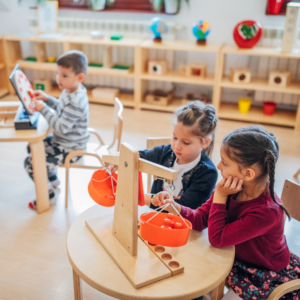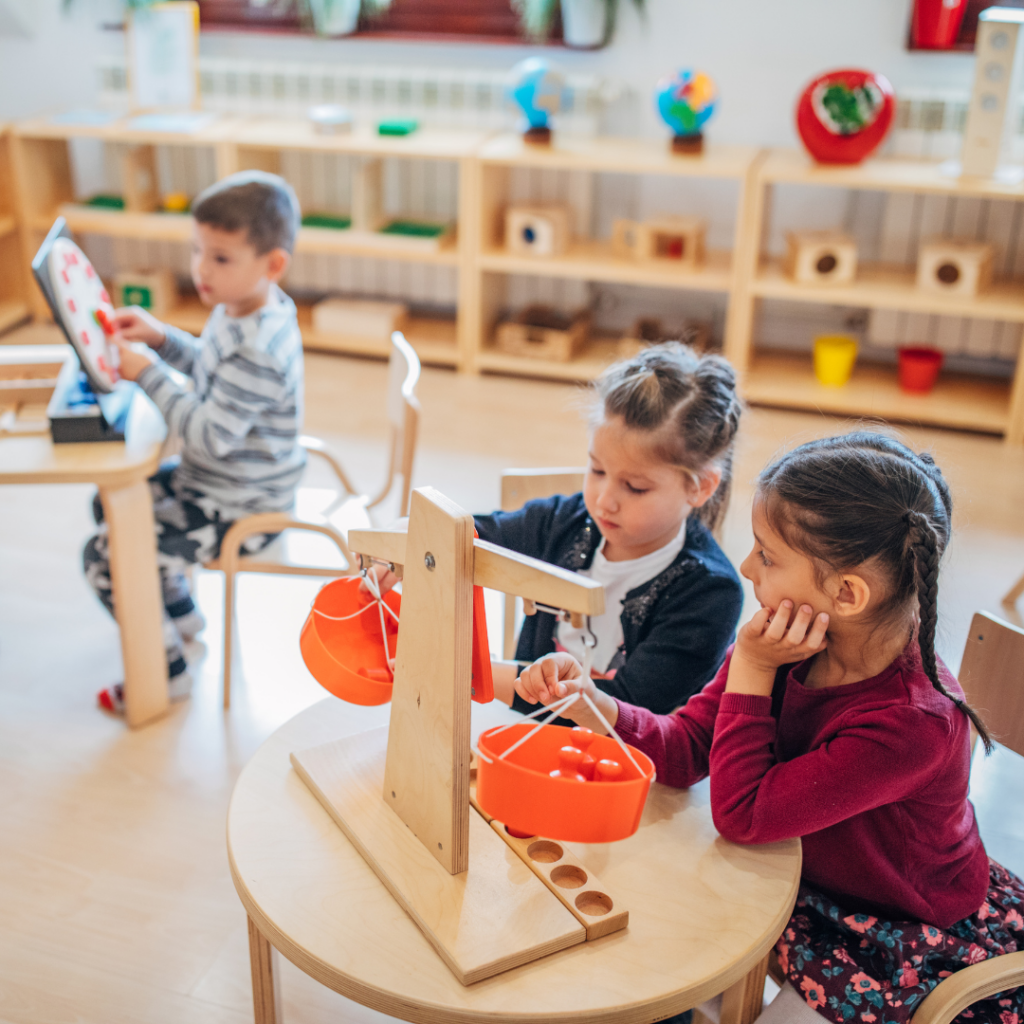 The terms “childcare center” or “early learning center” and “daycare” are often used interchangeably, but they actually represent different approaches to caring for children. Here’s a breakdown of the main differences:
The terms “childcare center” or “early learning center” and “daycare” are often used interchangeably, but they actually represent different approaches to caring for children. Here’s a breakdown of the main differences:-
Focus on Education and Development:
- Early Learning Center or Childcare Center: These centers prioritize structured learning and developmentally appropriate activities. They provide a curriculum that focuses on cognitive, emotional, and social skills, preparing children for school and life. These centers employ trained teachers who use research-based methods to promote early literacy, math, science, and social skills.
- Daycare: Traditional daycare focuses on providing a safe place where children’s basic needs are met, such as food, rest, and play, without a structured educational curriculum. The goal is more about supervision than intentional teaching or skill development.
-
Structured Environment:
- Early Learning Center: The day is typically organized around a structured schedule that includes a mix of activities: storytelling, outdoor play, art, and group time. These activities support holistic development, helping children learn routines, language, critical thinking, and motor skills.
- Daycare: Daycare environments tend to be more flexible and less structured. While children may participate in play, there’s generally less emphasis on organized activities designed to promote specific learning outcomes.
-
Qualified Staff:
- Early Learning Center: Staff at early learning centers often have specialized training in child development, early childhood education, or related fields. Many centers also require ongoing professional development to ensure that staff are up-to-date on the latest educational practices.
- Daycare: Daycare providers may not need specialized training in early childhood education. Their role centers around meeting the children’s immediate needs rather than guiding learning experiences.
-
Social and Emotional Development:
- Early Learning Center: In addition to academic preparation, early learning centers focus on social and emotional skills. Teachers help children learn to share, communicate, regulate emotions, and build relationships.
- Daycare: While daycare providers may supervise children in social settings, there’s less structured focus on teaching children to develop specific social skills, such as conflict resolution or emotional regulation.
-
Long-Term Goals:
- Early Learning Center: The goal is to lay the foundation for lifelong learning, preparing children for kindergarten and beyond. This includes helping children grow academically, socially, and emotionally.
- Daycare: Daycare is intended to provide basic care and supervision, often serving as a safe space for children while parents are at work rather than focusing on educational preparation.
Comparing it to a “doggie daycare” or “adult daycare” highlights the distinction: these services meet basic needs and provide a safe space, but they don’t focus on educational or developmental progress. Early learning centers, however, are designed with children’s growth and learning as a central goal, making them a proactive part of a child’s developmental journey.
 Kaye Boehning, M.Ed
Kaye Boehning, M.Ed
Founder, CEO
Tomorrow’s Promise, Inc.
2817 Old Houston Rd.
Huntsville, Tx 77340

